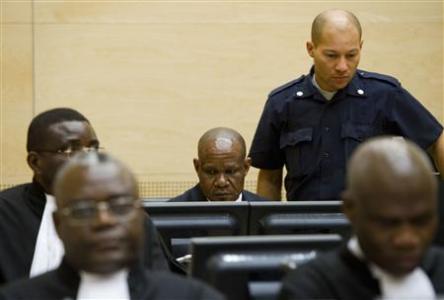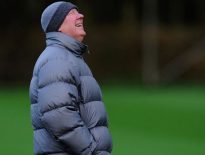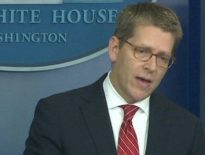(Reuters) – Congolese militia leader Mathieu Ngudjolo Chui was acquitted at the Hague war crimes court on Tuesday, after prosecutors failed to prove he ordered atrocities in eastern Congo a decade ago.

Delivering only its second verdict in 10 years of existence, the International Criminal Court (ICC) found Ngudjolo not guilty of ordering killings during a war in Ituri district in 2003. In its first ever verdict, delivered in July, the court had jailed an opposing commander, Thomas Lubanga Dyilo, for 14 years.
Ngudjolo was accused of war crimes and crimes against humanity, including overseeing killings, rape and pillage. His prosecutors will appeal the verdict and, though the court said Ngudjolo should be freed in the meantime, it was not immediately clear that he could leave the ICC detention facility for now.
The judges said they had no doubt the people of Ituri suffered the massacres described at Ngudjolo’s trial and critics of the ICC called for better prosecutions in future in order that victims and their surviving relatives should have justice.
“The people trusted the International Criminal Court more than our national courts,” said Emmanuel Folo of Ituri human rights group Equitas. “After this decision, for those who were victims of this, there is a feeling of disappointment. The victims feel forgotten, abandoned by international justice.”
The violence in Ituri was a localized ethnic clash over land and resources among myriad conflicts that spun out of the wider war in Democratic Republic of Congo from 1998 to 2003.
Some rebels involved in the current M23 insurgency in neighboring North Kivu province were involved in fighting in Ituri – among them M23 leader Bosco Ntaganda, who is himself on the ICC wanted list for war crimes alleged in Ituri in 2003.
VILLAGE MASSACRE
Prosecutors accused Ngudjolo of ordering fighters to block roads around the village of Bogoro in February 2003 in order to kill civilians attempting to flee and said civilians, including women and children, were burned alive in blazing houses. Some 200 people were killed when ethnic Lendu and Ngiti fighters destroyed the homes of the village’s mainly Hema inhabitants.
“The prosecution failed to investigate the chain of command adequately as far as the attack in Bogoro is concerned,” international criminal lawyer Nick Kaufmann said.
The ICC judges said prosecution witnesses who testified to Ngudjolo’s involvement were not credible. But president judge Bruno Cotte also said: “This does not in any way throw into question what befell the people of that area on that day.”
Geraldine Mattioli-Zeltner of Human Rights Watch said: “The acquittal of Ngudjolo leaves the victims of Bogoro and other massacres by his forces without justice for their suffering.
“The ICC prosecutor needs to strengthen its investigations of those responsible for grave crimes in Ituri, including high-ranking officials in Congo, Rwanda, and Uganda who supported the armed groups fighting there.”
UNLIKELY TO BE OVERTURNED
Legal experts said it was unlikely the acquittal would be overturned because new evidence cannot be introduced at appeal. Appeals panels rarely reassess the credibility of witnesses.
Until then, it is not clear where Ngudjolo might go, if anywhere. He remains under a United Nationstravel ban dating from his indictment. The Netherlands, where he has been detained since 2008, is not obliged to take him in. A Congo government spokesman said he saw no reason for Congo not to take Ngudjolo back, but he suggested it may wait until after the appeal.
Ngudjolo was arrested by U.N. peacekeepers in 2003 but later recruited to the Congolese army as part of efforts to integrate former rebels. Made a colonel in 2006, he was arrested in the Congolese capital Kinshasa in 2008 and handed over to the ICC.
The fate of Ngudjolo’s co-accused Germain Katanga is yet to be decided after judges split the two cases last month in a controversial move some analysts said may increase the probability of a conviction against the more prominent Katanga.
The court’s first verdict found Lubanga guilty of recruiting child soldiers to another militia in the same conflict in Ituri. Some observers said the different outcomes of the trials for militia leaders from different tribes could cause new friction.
“Lubanga was a Hema leader, and the acquittal of a Ngudjolo, a Lendu, just after the conviction of a Hema could exacerbate tension between the two ethnicities in Ituri,” said Jennifer Easterday of the Open Society Justice Initiative.
(Additional reporting by Joe Bavier in Abidjan and Pascal Fletcher; Editing by Michael Roddy and Alastair Macdonald)





